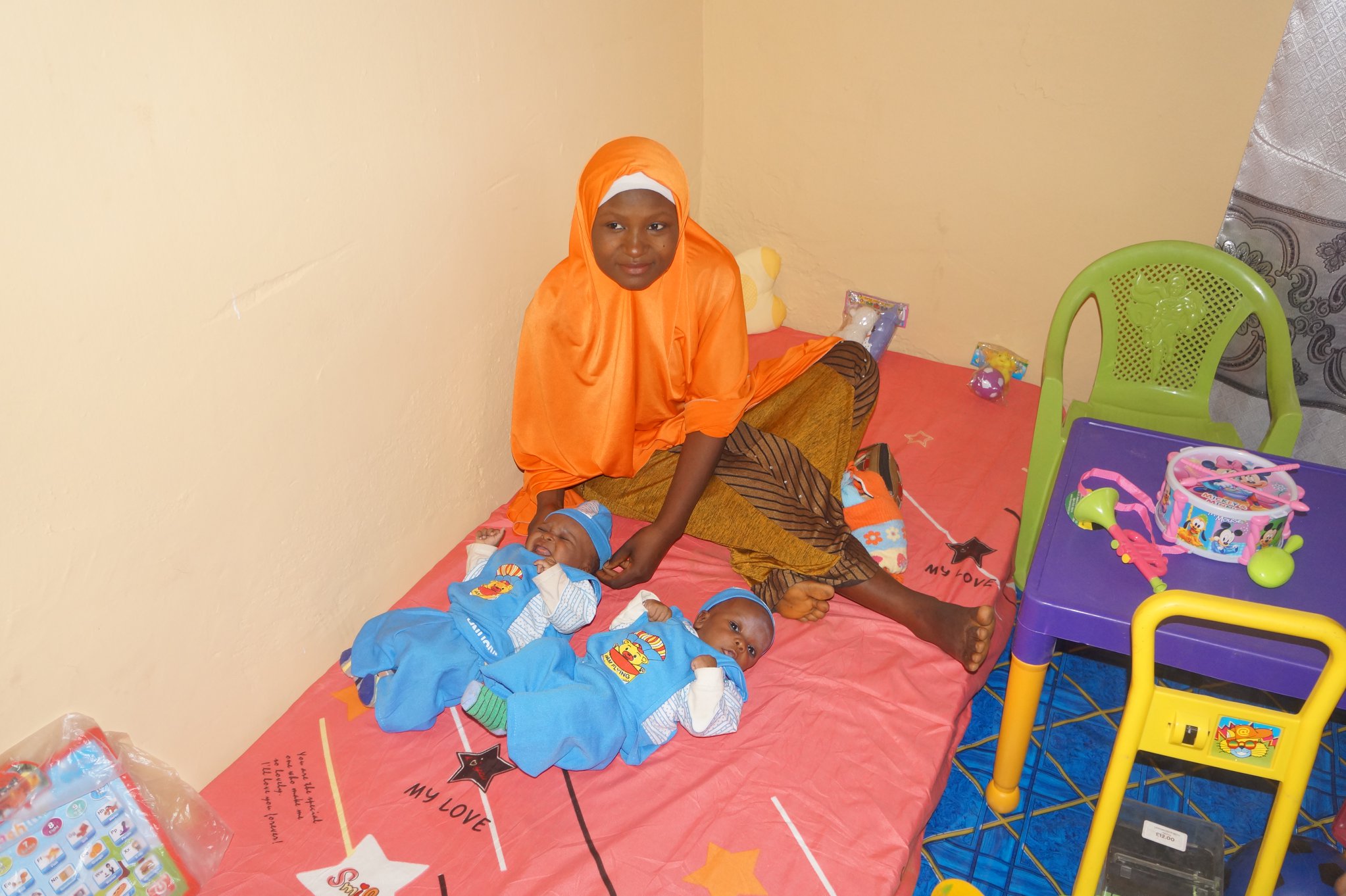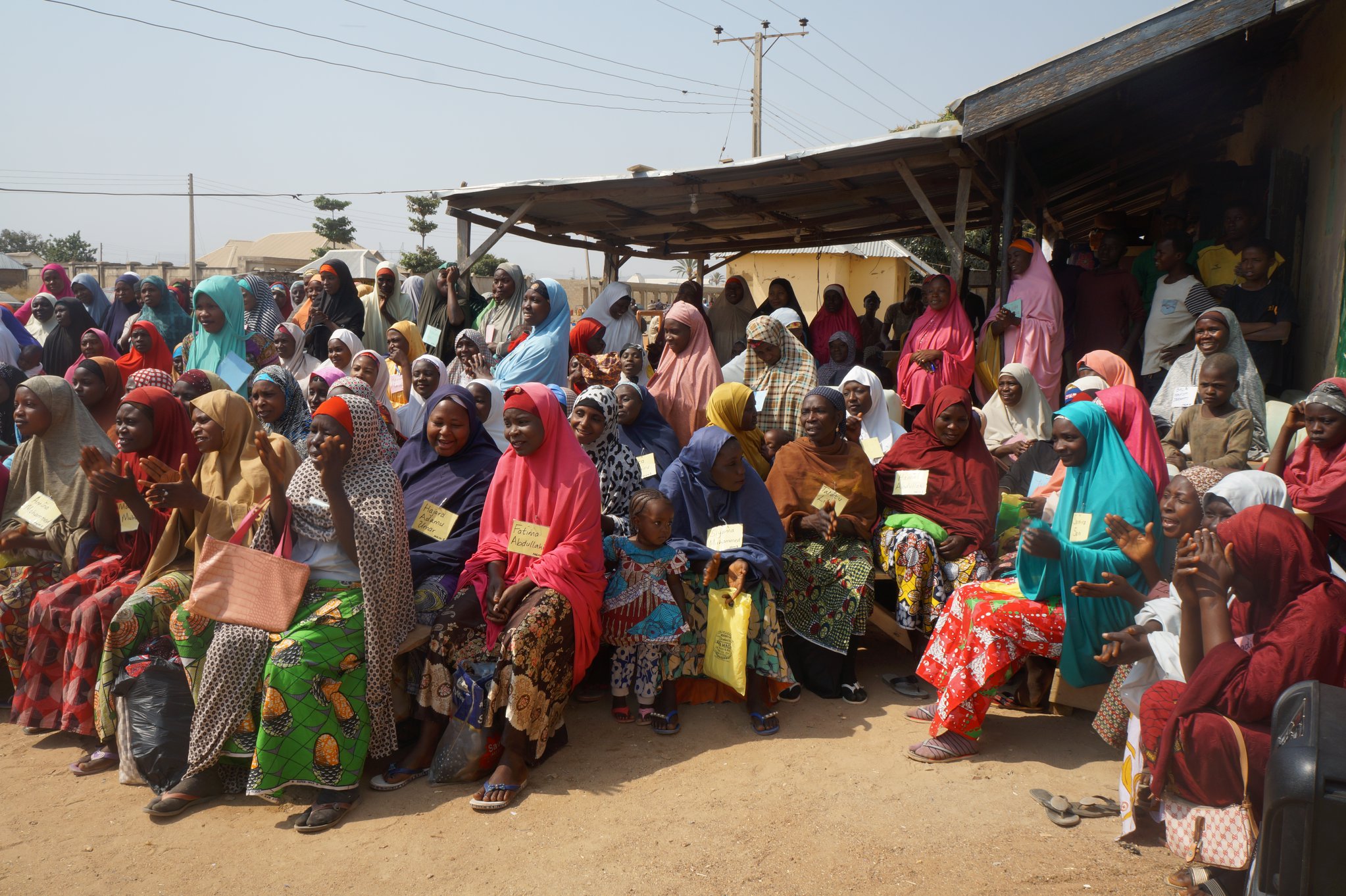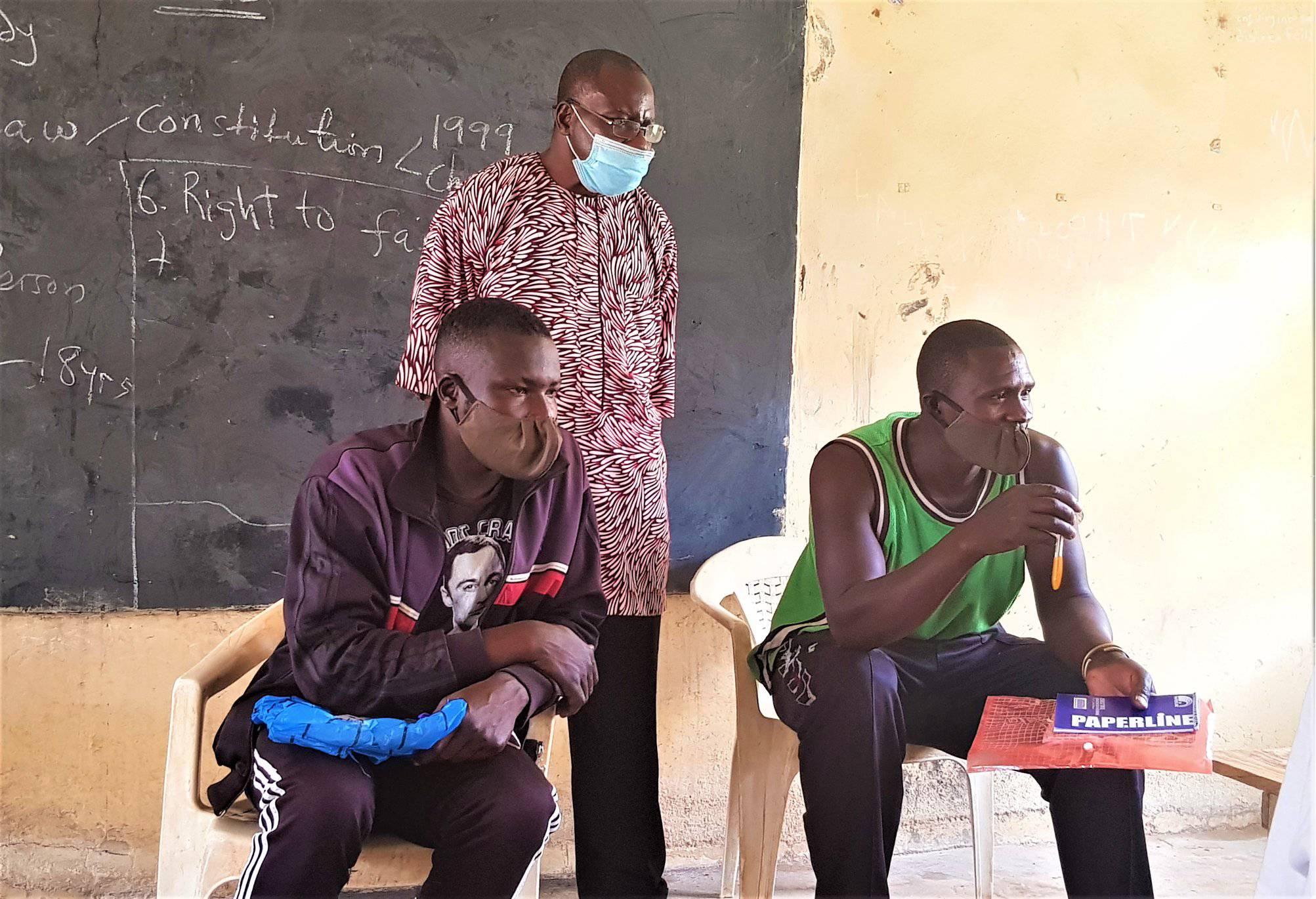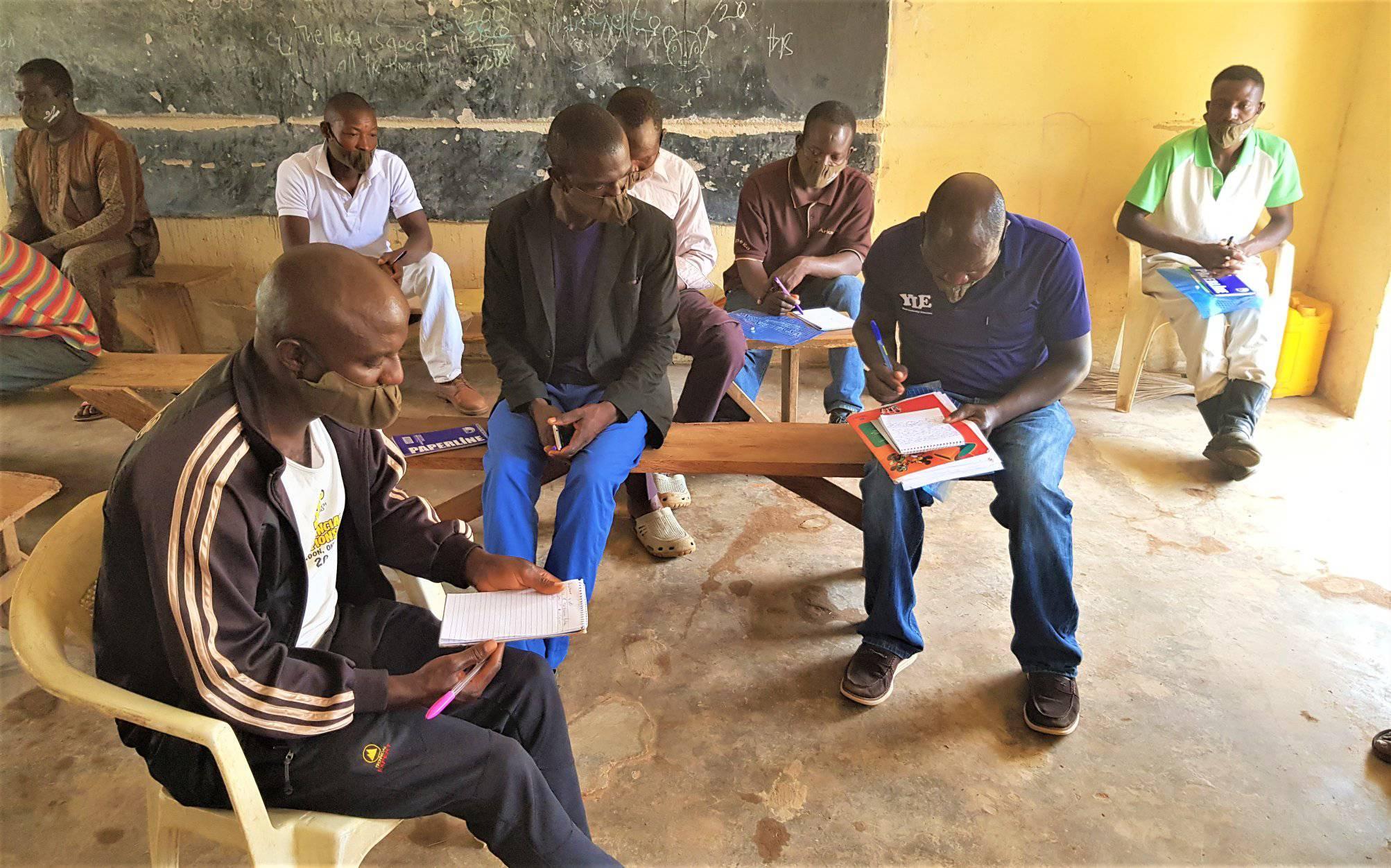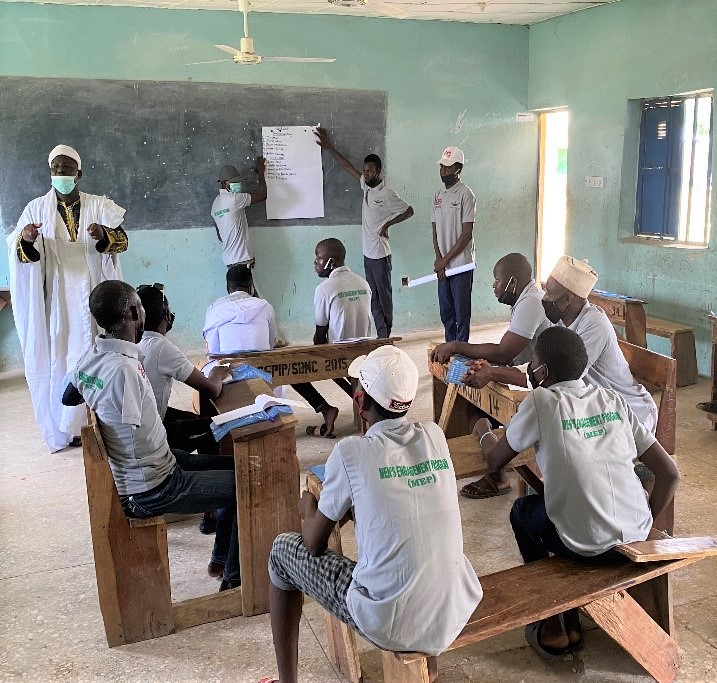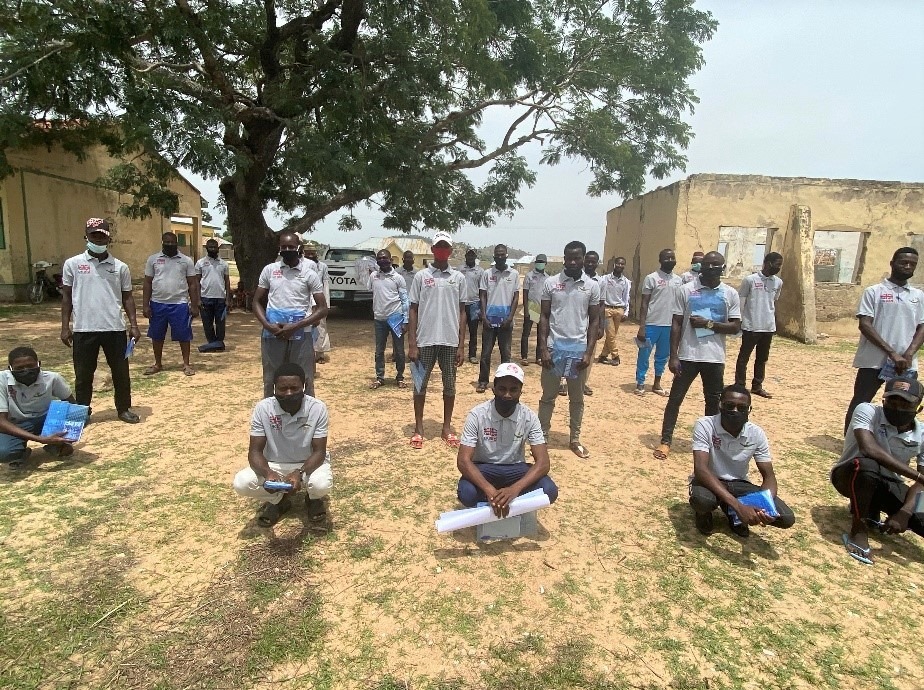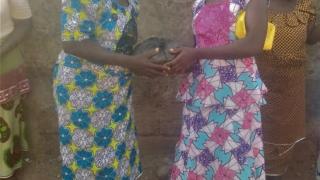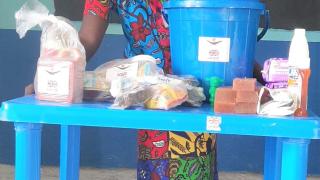Men in northern Nigeria demonstrate the important role of male allies for women’s empowerment
On International Men’s Day, the Magama community offers an inspiring example of what can be achieved when male allies support women’s rights and gender justice
Earlier this year, in the midst of the COVID-19 crisis, one of the communities where we work in northern Nigeria celebrated a significant milestone: the withdrawal of Women for Women International from their village. Over the past three years in Magama Gumau district, 876 women have successfully graduated from our 12-month programme, and hundreds more male leaders and community members have taken part in Men’s Engagement activities.
The final cohort of 291 women graduated from our programme in Magama Gumau in July 2020, celebrating with a socially-distanced ceremony
The impact for women in Magama
Magama was the first community where we worked in Bauchi state, one of Nigeria’s poorest states, and home to a large population of internally-displaced people (IDPs) who have been uprooted from their homes by the Boko Haram insurgency, natural disasters and inter-ethnic clashes. When Women for Women International entered the community in 2017, women in Magama reported facing multiple challenges and barriers, including harmful gender norms and high rates of violence. For example, at the time of programme enrolment, 27% of women reported experiencing domestic violence and 80% said they believed husbands are justified in beating their wives.
As the final cohort of women prepared to graduate from our year-long programme in July 2020, Magama Gumau’s district head, Seriki Musa Sambo, paid a visit to the Women for Women International-Nigeria team. Mr Sambo recounted some of the changes he had seen since Women for Women International began partnering with the community in Magama three years ago:
Women in the community have become more aware of their rights and they can now defend them. The women are now able to participate more than before in decision-making within their family and in the community. They have contributed a lot to household needs.
He celebrated the benefits of group structures and support networks to build self-suffiiency: "Through Women for Women International, we now have women’s cooperatives, which give out loans to members. They do businesses like rearing animals and livestock; these are some of the activities that the community has witnessed with the coming of Women for Women International.”
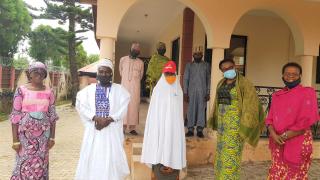
With the coming of Women for Women International, we have seen a lot of changes.
The role of men as allies
While women have led the way, the changes witnessed in Magama over the past three years could not have been achieved without the support and involvement of the whole community – including men, who hold positions of power and have the ability to influence social norms.
From the outset, the local stakeholders in Magama – primarily male community leaders, such as the district head and council of chiefs -- were highly receptive and supportive of Women for Women International and our mission. The involvement of influential male allies in Magama ensured that the community understood the purpose and outcomes of the training programme and were willing to embrace it, creating an environment where women could flourish outside as well as inside the classroom. The district head and his council of chiefs even stood up to defend the teachings of Women for Women International when a local cleric challenged them.
The cooperation of male leaders in Magama led to new initiatives to build on the success of the programme, which were devised and implemented by the community, based on their own needs and aspirations. Magama was the first community where we worked to pilot a daycare centre to assist mothers in the programme, after childcare responsibilities were identified as one of the key barriers preventing women from gaining skills and improving their economic status. The PRaY (Project Raino Yara) daycare centre was officially opened in January 2019. The community donated a room for the centre and took over its administration, engaging the services of a teacher to care for the children and run activities. This initiative allows women to concentrate on their training without distractions, while offering children opportunities to learn and socialise with peers.
With the support of male leaders, the community established a daycare centre to look after children while their mothers take part in our training.
Introducing the Men's Engagement Programme
Mr Sambo and other male stakeholders in Magama have been instrumental in engaging other men in the community – particularly the husbands and relatives of women enrolled in the programme. It was at the leaders’ request that Women for Women International began implementing our Men’s Engagement Programme in Magama. They saw that programme participants could not fully and effectively implement the skills they develop during their training, without a supportive environment outside the classroom. Women needed their husbands and male relatives to respect their right to work outside the home, make financial decisions, and own property. They needed to be free to pursue education and participate in community activities, without backlash, and be safe from violence and abuse. This required men to have a shared understanding and commitment to change.
Working directly with men is vital to shift harmful gender norms and create an environment where everyone can reach their potential.
Passing over the torch to the men and women of Magama, Women for Women International-Nigeria Country Director, Bukola Onyishi, explained that: “While we come to the community with our services, the resources required to make them meaningful are within the Magama Gumau community itself. The Women for Women International programme is like sowing seeds in the community and, after we exit, it is the community’s role to nurture those seeds”.
Continue reading
On World Kindness Day, a group of women in our programme in Nigeria show us how compassion can make the world a healthier, happier place.
We are thrilled to announce Clarissa Ward, CNN’s chief international correspondent, as our newest Ambassador. Here she shares her advice for staying connecting and using your voice to create change.
On Global Handwashing Day, we’re celebrating women who are leading the fight against COVID-19 and other life-threatening diseases, by championing hand hygiene.







